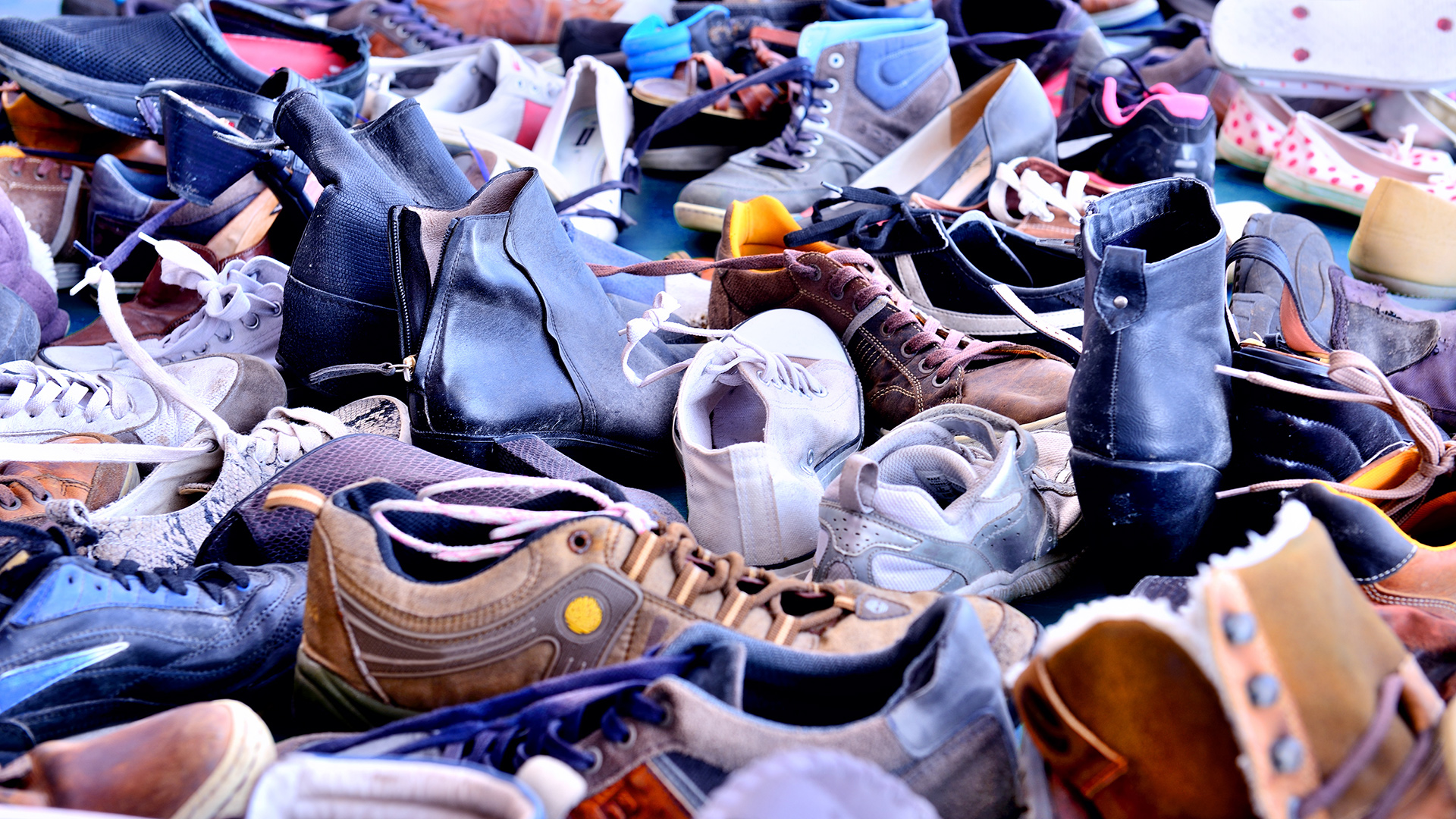
Take Off Your Shoes and Be Quiet
A meditation retreat shouldn't make you angry, right? But if it does, maybe you should simply wait, just a little longer.
It was the weekend of a snowstorm; I don’t remember the year, but I do remember snow.
I wasn’t a morning person, so it was a big deal that I’d signed up for a two-day mystical peace-inducing program called an “Intensive” that started at 8 a.m. I’d never been to an Intensive, but I’d heard there’d be a bunch of swamis and we’d all receive some kind of magical transmission from the Guru, and then maybe I’d be less screwed up.
I don’t remember why I was screwed up, but for the sake of the story, let’s say it was because I didn’t know what I was doing here. Many years of ineffective therapy for free-wheeling nonspecific anxiety had brought the epiphany that maybe I simply had no business being on this planet.
And now I must tell you, I’m not a shoe person. Many women love shoes, but I am not such a woman. If I can find one pair that doesn’t hurt, I wear them until they crumble. Perhaps if I am ever given an award, I’ll buy a nice pair of shoes to wear when I accept it, even though I fear I won’t be able to talk in pretty shoes. But I digress.
Given my history, I was probably wearing old shoes the morning of the Intensive, and I didn’t mind leaving them in the coatroom before entering the meditation hall, which should have made me less cranky, since I prefer bare feet. But the swamis in the meditation hall told us to sit straight with our bare feet folded in our laps and what yogis call our “sit-bones” (ischial tuberosity) against the floor. I am not a straight sitter. Even now, however many years later it is, I am slouching in my chair as I type. But I digress again. Since I wanted my magic Guru transmission, I resolved to make my best effort. The swamis were very entertaining, and for almost an hour I forgot what a bad mood I was in.
After the talks, the swamis told us to meditate. I figured fifteen, maybe twenty minutes tops, and I pushed my bony bottom into the floor, closed my eyes, and said my mantra in my head.
“Hey, I’m doing pretty well,” I thought. “I’m saying my mantra. I wonder what time it is. I wonder what’s going to happen after this meditation. Boy, I hate sitting straight. Maybe I’ll just slouch for a few minutes. Yikes, my legs are asleep.” You get the drift.
After about forty-five minutes with nobody saying, “You can open your eyes now,” I opened my eyes anyway, and that’s when I saw the snow: big, fat flakes falling in slow motion. I love snow, and suddenly I was enraged that I was in a meditation hall while it was falling outside. And as the meditation went into the second hour, I suddenly had an overwhelming urge to kill or at least punch somebody so hard it made a thwunk, but the meditation continued.
"As the meditation went into the second hour, I suddenly had an overwhelming urge to kill or at least punch somebody so hard it made a thwunk, but the meditation continued."
I did not feel a magical transmission. I did not feel un-screwed up. My back hurt, and everything from my waist down was numb. All the other people looked so peaceful with their eyes closed, which made me want to scream and throw a chair, only there were no chairs! Finally, someone rang a gentle bell, and one of the swamis announced that because of inclement conditions and the fact that so many people were driving long distances home, we would have a final darshan (audience with the Guru) and end early. Depending on the severity of the storm, the next day might be cancelled.
“Pfft!” I thought as I lined up to pay my respects to a large photograph of the Guru perched in a chair. “Not only is my behind asleep, but they’re canceling the program and now I’m supposed to bow to a picture!”
That’s when I saw the shoes. As I said, I don’t care about shoes, so it made no sense whatsoever that the sight of the Guru’s crinkly old shoes displayed on an altar made my heart feel simultaneously as though a dear friend had died, a baby was being born and someone was handing me an award. My heart burst, I started sobbing uncontrollably, and since none of this made any sense, it pissed me off even more.
Late that afternoon, a swami called to say the Sunday program was cancelled. He sounded so nice, and I felt bad because I wanted to punch him.
“Oh,” I answered politely as I stared out at the snow on the roofs across the way. “Well, thanks for calling.”
“So how was it for you?” he asked after a pause.
Maybe it was the softness of his voice—I don’t know—but I came unglued. I told him how angry I’d been during the meditation, how my behind had fallen asleep, how I hate sitting up straight, and on and on, concluding that perhaps it was my negative attitude that had caused the second day of the Intensive to be cancelled, and maybe the snow was punishment for all my lousy thoughts.
"Even if I never receive an award and insist on wearing unpretty shoes, despite all my lousy thoughts, bad posture, and crankiness, I can still know that I’m good."
There was a long pause. And then in the calmest, most loving voice, the swami answered, “Maybe it’s just snow.”
And today, however many years later it is, I think that’s when I got it—the fact that reasons, and the words we use to express them, just make things complicated. After all, what words could possibly explain my rage at no words in that endless meditation? What words could convey the flood of mourning and longing?
Now, because I’m much older as I remember that weekend, I’ll use the L word: love. Who can explain the effect of the Guru’s shoes, or the sweet energy of the swami’s voice telling me the snow was not my fault and the sudden knowledge that even if I never receive an award and insist on wearing unpretty shoes, despite all my lousy thoughts, bad posture, and crankiness, I can still know that I’m good?
I’m good. You’re good. Even all the people who do horrible, unfair things are mostly good. They’re just scared about losing something, something they most likely never had in the first place, like unconditional safety, so they make it somebody else’s fault.
I now know that rather than yelling, “You’re bad and I hate you!” I should be quiet. Not inactive. Just quiet. I know to look quietly for their goodness, but stand my ground. And occasionally if I can look deep enough and see behind their fear, maybe they’ll see what I see. And change—the way I did when I saw those old, crinkly shoes.
So, no more words.
No reasons.
Just be.
Then look. Deeply.

